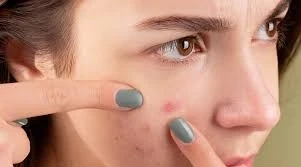Glutathione, a naturally occurring antioxidant within our cells, has exploded in popularity in the skincare world. Touted for its potential to achieve a brighter, younger look and diminish acne, it's readily available in supplement and topical forms. However, with this surge in popularity comes a flurry of questions and potential side effects, including a crucial one – can glutathione supplements actually worsen acne?
This article dives deep into the science behind glutathione and its impact on acne development. We'll explore the limited research, weigh the theoretical benefits against the potential risks of aggravation, and empower you to make informed decisions about incorporating glutathione into your acne management routine.
Unveiling Glutathione: Beyond the Hype:
Glutathione, a tripeptide composed of glycine, cysteine, and glutamic acid, plays a vital role in several bodily functions, including:
Detoxification: It helps eliminate toxins and free radicals that damage cells and contribute to various health issues.Immune System Support: Glutathione plays a role in supporting the immune system's response to foreign invaders.Antioxidant Activity: It neutralizes free radicals that can damage cells and contribute to skin aging.These properties have led many to believe that glutathione can offer a plethora of skin benefits, including Acne Treatment in Dubai reduction. However, translating these functions into a direct impact on acne requires further research.
Exploring the Potential Benefits: A Glimpse into the Future?
Limited evidence suggests some potential benefits of oral glutathione for acne, but the picture is far from clear. Here's a closer look:
Theoretical Antioxidant Benefits: In theory, glutathione's antioxidant properties could potentially combat oxidative stress, which may play a role in acne development. However, more research is needed to confirm this connection and its relevance to oral supplementation.Potential Risks of Aggravation: A Cause for Concern?
Despite the theoretical benefits, some theories suggest oral glutathione supplementation might even worsen acne symptoms:
Hormonal Imbalances: Glutathione may influence androgen metabolism, potentially increasing levels of free testosterone, a key player in acne development. More research is needed to understand this connection fully.Increased Inflammation: Although an antioxidant, high doses of glutathione supplements might paradoxically induce inflammation, a contributing factor to acne breakouts.Gut Microbiome Disruption: Some research suggests that oral glutathione supplements may disrupt the gut microbiome, potentially leading to inflammation and acne flare-ups.Separating Fact from Fiction: Navigating the Research Landscape
The link between glutathione and acne outcomes is murky and requires further exploration. While some potential benefits exist, it's important to manage expectations based on current scientific research:
Limited Evidence for Oral Supplements: Research specifically investigating the impact of oral glutathione supplements on acne development is scarce. Existing studies primarily focus on topical glutathione applications for skin lightening, not treating acne.Focus on Topical Applications: Topical formulations of glutathione may offer a more direct approach to potentially benefit the skin. However, more research is required to determine their effectiveness for acne specifically and whether they pose any risk of aggravation.Individualized Responses: Each person's skin reacts differently to various products. Consulting a dermatologist for personalized advice is crucial.Beyond Glutathione: Proven Strategies for Clear Skin Management:
If you're looking to achieve clear, radiant skin and manage acne, here are some evidence-based strategies to focus on:
Dermatologist Consultation: A dermatologist is your best bet for a personalized acne treatment plan. They can assess your specific skin concerns and recommend proven acne therapies like topical medications (retinoids, antibiotics), oral medications, or other effective options.Healthy Lifestyle Habits: Maintaining a balanced diet rich in fruits, vegetables, and whole grains, combined with regular exercise and adequate sleep, contributes to overall health and well-being, potentially reducing acne breakouts.Consistent Skincare Routine: A consistent skincare routine that includes cleansing, moisturizing, and using sunscreen with SPF 30 or higher daily is crucial for maintaining healthy skin and preventing breakouts. Look for cleansers that remove excess oil and dirt without stripping the skin's natural moisture barrier. Choose a gentle, non-comedogenic moisturizer to hydrate without clogging pores.Stress Management: Chronic stress can exacerbate acne. Practices like meditation, yoga, or deep breathing can help manage stress levels and potentially contribute to clearer skin.Patience and Consistency are Key: Embracing a Holistic Approach:
Patience and Consistency are Key: Finding the right treatment plan for acne takes time and consistency. Be patient with your skin and don't expect overnight results. Sticking with a consistent, dermatologist-approved routine will maximize your chances of achieving clearer skin.Explore Alternative Therapies: Consult your dermatologist about alternative therapies that may be effective for your acne, such as light therapy or chemical peels. These therapies can target specific acne concerns and offer additional benefits.Conclusion:
Glutathione holds promise as an antioxidant with potential health benefits. However, the evidence regarding its impact on acne, particularly through oral supplementation, remains inconclusive. Some theories suggest it might even worsen acne symptoms.


